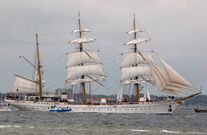 During the Great Century of missions, how did the colonial and imperial mindset of the west influence the practices of missionaries? What were some positive and negative outcomes of this mission mentality? Is this still a factor for today? Making the distinction between Our Culture, Their Culture, and God's Culture wasn't easy for protestant missionaries for who took advantage of the nations' zeal to colonize distant lands in the 19th Century (the Great Century of missions). As a result, The Great Commission came back into focus and Christ was preached around the globe, but in a mixed message that challenged natives to extract the Truth of the gospel from the cultural baggage of Europe.
1 Comment
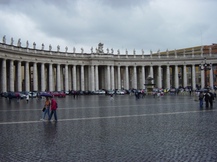 What place does our faith have in the “public square” today? When Jesus began his ministry Jews expected that the Kingdom of God He announced would reinstate King David's political state. They missed the all encompassing and timeless plan revealed in the spiritual aspect of Christ's teachings. Yet, today many are in danger of repeating the Jew's misunderstanding by mistaking the Kingdom of God for the Kingdom of America. 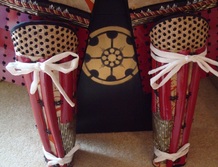 What impact did the “five solas” of the reformation have on the 16th century? Are they still valid foundational aspects of the faith? As a 21st century reformer, what would your five solas for today be? Theology is like armor. It protects from false teachings and the devil's schemes. In the 16th century, the reformers discovered the armor they unquestioningly accepted from the Roman Catholic Church left them unable to stand when the day of evil came. Thus they threw it off and reforged Christian theology with “five solas.” 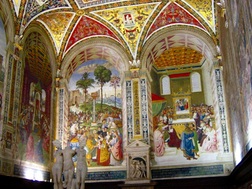 What difference did media make in the Reformation? What kinds of media were used? How did it impact the Reformation? How does media influence spreading the gospel today? The Renaissance introduced new media and messages, but they are often confused as one and the same. Media are tools that take the shape of the message they carry, which the Roman Catholic Church happily employed decorating churches with the art of Leonardo da Vinci and Michelangelo. However, these same media broadcast the corruption of the Church to all and the illusion of infallibility vanished.  One positive and one negative event and the lesson it teaches from the history of Christianity. How do they apply to God's mission today? Sadly Tertullian's famous quote that “the blood of the martyrs is the seed of the church” is not always true. In fulfilling Christ's Great Commission, the apostles used not only the Roman roads to reach Europe with the gospel, but also the Silk roads to reach Asia and Africa. Tradition states that the apostle Thomas discipled Christians who reached Persia, Arabia, India, and China. Their efforts spawned the first Christian nation of Armenia, one of the first church buildings in Dura-Europa, and even a theological missionary school in Nisibis (Persia)! By 500 A.D. half of all Christians lived in the non-west, but trials and persecutions virtually wiped them from history. 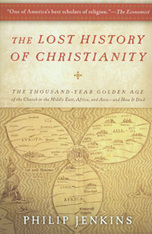 Philip Jenkins' Lost History of Christianity tells the story of great Christian movements that happened east of Jerusalem. What was great about these movements? Why did they not survive? So what? What difference should this make for us today? It is encouraging to learn that as the gospel spread with Christ's disciples and was widely accepted far beyond Europe. The fact that Christianity once flourished under the Western Church, the Orthodox Church, and the Eastern Church of Africa and Asia dispels the common myth that Christianity is strictly “western” when in reality it is universal. Also to know that Christ is actually returning to Asia and Africa and not arriving can act as a bridge for evangelism. 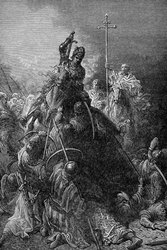 How could the Crusades have actually taken place? How could all the violence, pillaging, rape, oppression, & conquest have been committed over hundreds of years, including Christians killing Christians (4th Crusade), all in the name of Christ? What relevance or lessons can we learn for today? Other wars have been a series of unfortunate events led by one warmongering fool after another, but the crusades are especially renowned as one of the darkest moments in Christian history due to the abuse of and particularly by the Church. Overt plundering, sexual violence, and genocidal bloodbaths against the innocent was the rotten fruit from the cross-pollination of Church and State centuries earlier.  Within the context of the schism between the church of the East and the church of the West – who tried to contextualize the faith and practice of the church according to culture, East or West? Were they wrong to adapt or contextualize their faith? How does this apply to today? Power produces pride, and from pride proceeds poison. For the paradoxes of Christianity, that poison takes the form of a destructive Either/Or mentality compared to a healthy Both/And mentality. As the church of the East and the church of the West allowed the seed of the gospel to bloom within their culture's soil, they forgot Paul's message that The Church is a body with many parts. Thus when they claimed power by attempting to prune the other church's flowers, because they looked different from their own, they effectively cut off The Church's own arm.  What was the most frequently asked question during the heretical controversies of the 4th century? Is this question still relevant today? How so? What does the bible say? The church found it just as hard to nail down Jesus as the Romans did, as the issue of exactly who Jesus is (Christology) refused to die and rose up time and time again. 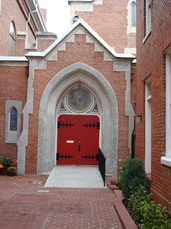 What is the church? Compare the NT church with that of the illegal, imperial, (medieval) ages. What is your definition of Church? A distinction must be drawn between The Church vs. A Church. The Church consists of Christ's true followers in all the earth and in all time regardless of denomination. A Church is one part of The Church, as a community of Christ Followers fulfilling The Great Commission. 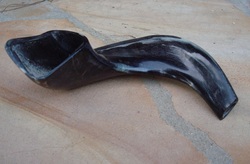 How “Jewish” did you have to be in order to be included in the church before Acts 15? After Acts 15? What forces led to this change? Why does this matter today? The meeting of the Apostles and elders in Acts 15 could be considered to be the first “church council.” Like church councils of the future, the meeting addressed issues occurring prior to the meeting, and then set the appropriate direction for the future. |
AuthorBrett Yardley: Categories
All
Archives
January 2019
|

